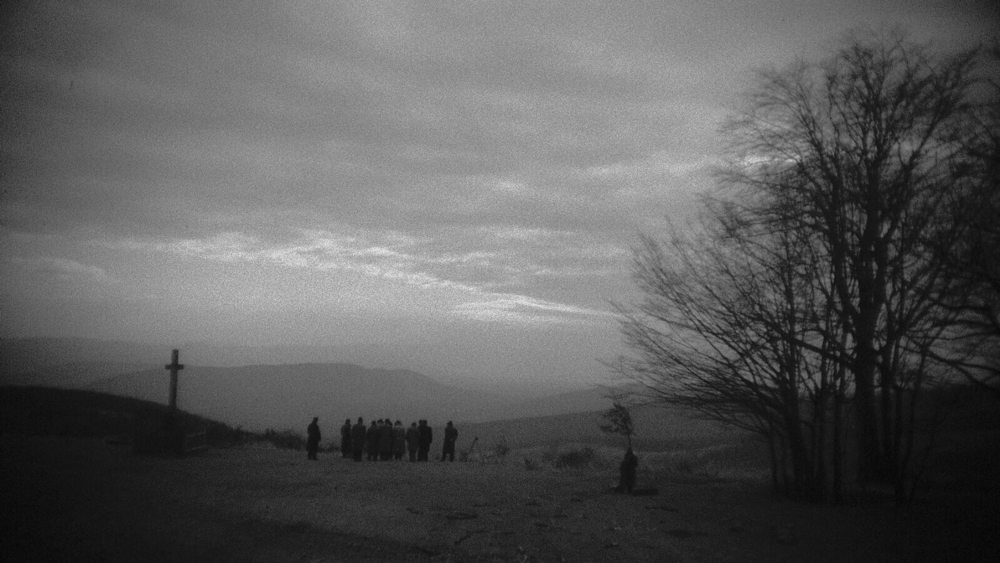Béla Tarr and his acolytes are currently experiencing a moment in the sun at New York City’s repertory cinemas. Film at Lincoln Center will screen a new restoration of the Hungarian filmmaker’s Werckmeister Harmonies (2000) in late May, and his once-collaborator Rob Tregenza was the subject of a recent retrospective at the Museum of Modern Art. The allure of these films has to do with their slowness, a vogue topic among audiences looking to sink into, or be washed away by, films where each action, however insignificant, builds a sense of portent; perhaps a mimetic play on our proclivity to search for meaning or anticipate breakthroughs as we shuffle through the drudgery of everyday lives. Twilight, a 1990 adaptation of Friedrich Dürrenmatt’s It Happened in Broad Daylight, directed by György Fehér (best known as a producer for Tarr’s Sátántangó), dwells on this very drudgery, turning a simple story about the murder of three young girls and the detective hellbent on finding the culprit into a meditation on the human desire for answers where none may exist.
Throughout Twilight, the camera moves in a slow but restless manner, as though searching the entirety of Hungary for the murderer. “I wanted to show to what extent the search for justice stands in ridiculous contrast to the eternity of nature,” Fehér has said. This conflict informs each of cinematographer Miklós Gurbán’s frames, wherein the stoicism of the police force (whose uniform seems to include grizzly mustaches and beady eyes) is threatened by a wayward camera intent on suggesting something is amiss even if it can’t quite pinpoint it.In one scene, a tracking shot plays like a jousting match between the detective and the camera, with one eventually toppling the other as they both descend a staircase into the darkness of the precinct’s lower levels.
By framing his detective story as a meditation on insolubility, Fehér breaks away from the traditions of the whodunnit to consider an even more daunting question: how meaning haunts us. He never presumes to answer the question; instead, he allows the expanse of Hungary’s mountainous forests and the pervasive fog that populates them to motivate thinking. The experience of watching Twilight gives way to anxiety, as a severe human ordeal is eclipsed by the senseless vastness of the environment in which the events unfold. Fehér recognizes courage in the attempt to extract meaning from staring at a sea of trees, listening to lies, or following dead ends.
Twilight screens April 23–27 in a new digital restoration at Film at Lincoln Center.



